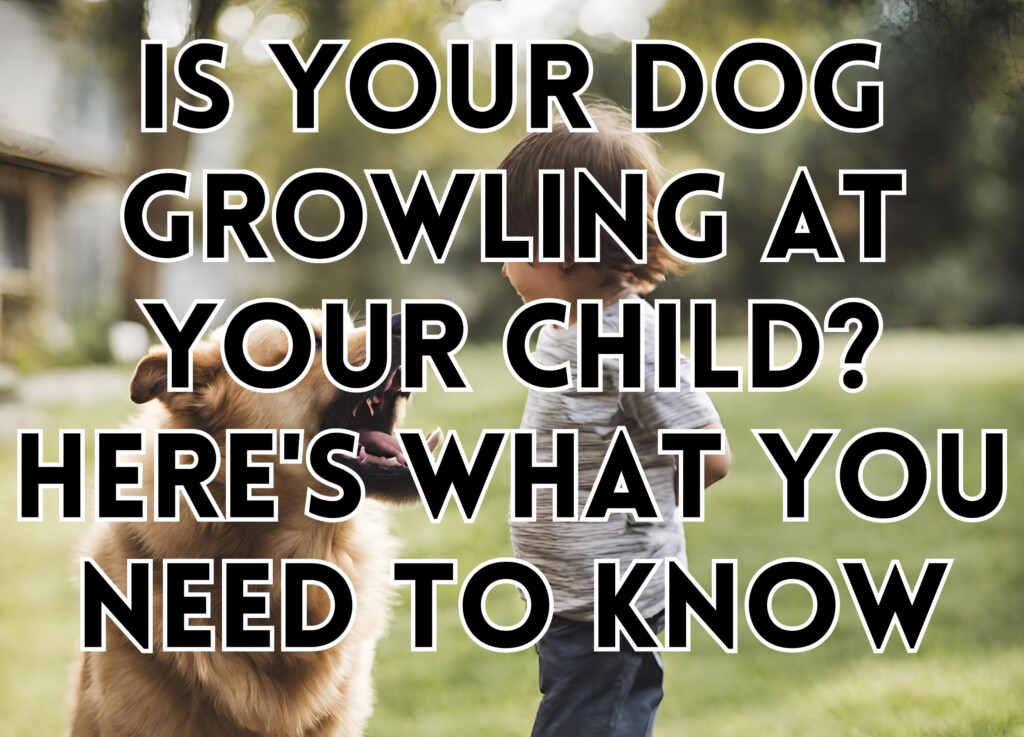When your dog growls at your child, it can be a concerning and confusing experience. While it’s easy to jump to conclusions, it’s crucial to remember that dogs communicate through body language and vocalizations, including growling. Understanding why your dog is growling at your child requires a nuanced approach, considering various factors like the dog’s health, the child’s behavior, and the dog’s past experiences. In this article, we’ll explore these considerations to help you get to the root of the issue.

The Child’s Behavior: Unseen Actions
Children are naturally curious and may not understand the boundaries that a dog might have. It’s possible that the child has engaged in behavior that the dog finds threatening or annoying, even if you haven’t witnessed it. Teaching children how to properly interact with dogs is crucial for both parties’ safety and comfort.
The Dog’s Socialization: Does It Growl at Everyone?
If your dog growls at everyone and not just your child, it may be a sign of poor socialization or general anxiety. In this case, consult a veterinarian or a certified dog behaviorist for a comprehensive evaluation and training plan.
Medical Concerns: Hidden Pain
Dogs can’t tell us when they’re in pain, and growling may be their way of communicating that something hurts. Conditions like arthritis, dental issues, or internal pain can make a dog more sensitive to touch and more likely to growl when handled in a way that exacerbates their discomfort.
The Dog’s Past: Trauma and Previous Experiences
If you’ve adopted a dog, consider that you may not know their entire history. Past trauma or abuse can lead to behavioral issues, including growling when they feel threatened or scared. Understanding your dog’s past can help you address its current behavior more effectively.
Immediate Steps to Take: Safety First
- Separate the Child and Dog: Until you can determine the cause of the growling, it’s safest to keep the child and dog apart.
- Consult a Veterinarian: Rule out any medical issues that could be causing your dog pain.
- Seek Professional Help: A certified dog behaviorist can evaluate your dog’s behavior and recommend a training plan.
A Multifaceted Approach
Understanding why your dog is growling at your child requires considering multiple factors, from the dog’s health to the child’s behavior and even the dog’s past experiences. By taking a comprehensive approach to address the issue, you can ensure a safer and more harmonious relationship between your child and your four-legged family member.
As an Amazon Associate we earn from qualifying purchases through some links in our articles.




